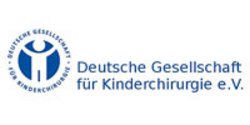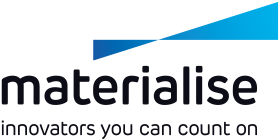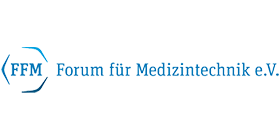3rd International Symposium on Pediatric Medical Devices
3rd International Symposium on Pediatric Medical Devices
Regulatory Affairs and Clinical Trials for Children
Day 1 | February 9, 2021
In national and European medical device legislation, the pediatric aspects have so far been absent or neglected. Also in view of the currently changing medical device legislation (MDR) and the associated difficulties for pediatric medical devices, our congress series PedMedDev provides for the first time the necessary forum for regulatory affairs for children. Since 2016, it has established itself as a platform involving all stakeholders.
With regard to clinical trials for children, current topics such as computational modeling and simulation in clinical trials and real world data/evidence will be presented and discussed with you by leading experts.
Chairs:
Prof. Dr. Heike Wachenhausen | Technische Hochschule Lübeck, Lübeck, Germany
Dr. Ludger Tüshaus | Universität zu Lübeck, Universitätsklinikum Schleswig-Holstein, Lübeck, Germany
| CET | EST | Title | |||
| 15:00 | 09:00 AM | Opening | |||
| Scientific Session 1 | |||||
| 15:05 | 09:05 AM | Evaluation of the Paediatric Regulation: how the current framework can be improved Dr. Fabio D'Atri | European Commission, Bruxelles, Belgium | |||
| 15:30 | 09:30 AM | Increasing safety in children using the example of drug therapy Prof. Dr. Antje Neubert | Universitätsklinikum Erlangen, Erlangen, Germany | |||
| 15:55 | 09:55 AM | Proving the effectiveness of pediatric medical devices Prof. Dr. Stefan Sauerland | Institut für Qualität und Wirtschaftlichkeit im Gesundheitswesen (IQWiG), Köln, Germany This talk first examines where effectiveness data are required for new pediatric medical devices. After CE marking, most medical devices are reimbursable in German healthcare without any need for effectiveness data. In the second part, the challenges of performing clinical studies on (pediatric) medical devices are discussed. The typical problems, e.g. impossibility of blinding, presence of learning curves, and incremental device modifications, can all be solved. Therefore, randomized controlled trials on new pediatric medical devices should be considered the standard option, unless the expected treatment effects are large and thus clearly detectable in observational studies. | |||
| 16:20 | 10:20 AM | Closing Discussion All Speakers of Session 1 | |||
| 16:30 | 10:30 AM | Break | |||
| Scientific Session 2 | |||||
| 16:40 | 10:40 AM | New frontiers in regulatory affairs using the example of closed loop systems in pediatric diabetology Prof. Dr. Thomas Danne | Kinder- und Jugendkrankenhaus Auf der Bult, Hannover, Germany | |||
| 17:05 | 11:05 AM | How to get from clinical data to clinical evaluation for pediatric medical devices Prof. Dr. Michael Imhoff | Ruhr-University Bochum; Clinical Director, qtec group Among many other things the Medical Device Regulation (MDR; (EU)2017/745) requires a clinical evaluation as part of the conformity assessment for every medical device. This clinical evaluation provides evidence of the safety, performance and benefit of a medical device based on clinical data. For pediatric medical devices gathering sufficient clinical data is a formidable task, because compared to adult populations, pediatric patient populations are much smaller, more often affected by rare diseases, represent vulnerable populations, and many relevant medical devices are not approved for pediatric use. Unfortunately, the MDR does not adequately consider the specific challenges of pediatric patient population with respect to the requirements for clinical data. | |||
| 17:30 | 11:30 AM | Concepts to overcome hurdles of innovation and development of pediatric medical devices Prof. Dr. Thomas Lenarz | Medizinische Hochschule Hannover, Hannover, Germany | |||
| 17:55 | 11:55 AM | Closing Discussion All Speakers of Session 2 | |||
| 18:05 | 12:05 AM | Break | |||
| Scientific Session 3 | |||||
| 18:15 | 12:15 AM | The power of computational modeling for clinical trials and regulatory processes Dr. Marc Horner | ANSYS, Canonsburg, PA, USA Computational modeling and simulation (CM&S) has the potential to revolutionize medical device development by accelerating innovation and providing comprehensive long-term safety evidence. The vision is that CM&S results will join bench, animal, and human testing as an essential element of device approvals. However, the credibility of a computational model must be established before using CM&S results for decision-making. ASME, US FDA, and others are developing standards and guidance focused on CM&S credibility and reporting to support regulatory evaluation. This presentation will provide an overview of the regulatory opportunities and discuss current challenges. | |||
| 18:40 | 12:40 AM | Using real-world evidence (RWE) to enhance regulatory and clinical trials Prof. Dr. Art Sedrakyan | Weill Cornell Medicine, Cornell University, New York, USA | |||
| 19:05 | 01:05 PM | Closing Discussion All Speakers of Session 3 | |||
| 19:20 | 01:20 PM | Wrap up and Closing | |||








